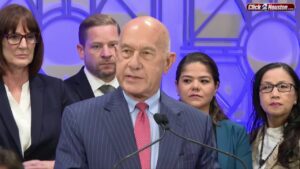October usually brings a cavalcade of Halloween-themed candies evoking bats, pumpkins or ghosts for trick-or-treaters and sugar fiends. But a new lawsuit argues that for snack company Hershey, there’s a fine line between a delightfully decorated Halloween treat and an unsightly blob of chocolate and peanut butter.
Under scrutiny are several of Hershey’s themed Reese’s Peanut Butter products, which are advertised in their packaging to contain decorative designs carved into shaped chocolates: a smiling jack-o-lantern face, the eyes and mouth of a ghost or the laces of a football.
Cynthia Kelly thought that was what she would be getting when she purchased a Reese’s Peanut Butter Pumpkin after noticing its packaging, with a “cute looking” carving of a jack-o-lantern, near the checkout registers in a supermarket, the lawsuit alleges.
But the chocolates don’t contain those decorations, the lawsuit says, which adds that the packaging misled shoppers like Kelly who were expecting the designs on their Halloween-themed treats.
Todd Scott, a spokesperson for Hershey, told The Washington Post that the company does not comment on pending litigation.
The class-action lawsuit, filed Thursday in Florida district court, accuses Hershey of using packaging that falsely advertise decorations on its Reese’s products. It cites Kelly’s experience and numerous YouTube videos from consumers and food reviewers expressing disappointment at the undecorated Reese’s chocolates.
“This is a trick, this is not a treat,” one reviewer says, holding up a Reese’s white chocolate in its wrapper, which shows a white ghost with carved eyes and a mouth.
Hershey joins a long list of food companies that have faced lawsuits in recent years over the advertising of their products – with mixed results. In 2022, a class-action suit accused Burger King of deceptively presenting its Whopper burgers in advertisements to be larger than they were in real life. Kellogg faced multiple lawsuits claiming that it falsely advertised the strawberry content of its strawberry Pop-Tarts. Customers have also sued over the marketing of Taco Bell’s Mexican Pizza, Starbucks’s Mango Dragonfruit Lemonade, TGI Friday’s mozzarella sticks and Red Bull’s energy drinks.
The cases against Taco Bell and Kellogg were dismissed, while the Starbucks and Burger King lawsuits are ongoing. The Red Bull and TGI Friday’s cases reached settlements. Kelly’s attorney, Anthony John Russo Jr., represented plaintiffs in the suits against Taco Bell and Burger King.
“Little situations – what some would consider to be a little situation like this – could lead to unfettered behavior from big corporations,” Russo previously told The Post of the Burger King case.
The lawsuit against Hershey accuses the company of deceiving customers and alleges that the misleading packaging is an attempt to boost sales. Previous versions of packaging for the same shaped Reese’s candies displayed them accurately with plain, undecorated surfaces and no carved designs, according to the lawsuit, and the packaging only changed between two and three years ago.
Kelly would not have purchased her Reese’s chocolate pumpkin if not for the eye-catching designs, the lawsuit states. It also links to a dozen YouTube videos of other consumers sharing Kelly’s disappointment. One video notes that small text on the Reese’s packaging appears to describe the carved decorations on the chocolates as a “decorating suggestion.” Another video calls the undecorated Reese’s chocolate pumpkin “deformed” and “faceless.”
“I’m flabbergasted,” says another reviewer, before taking a bite of the chocolate. “And the most annoying thing about this is, it’s quite nice.”










